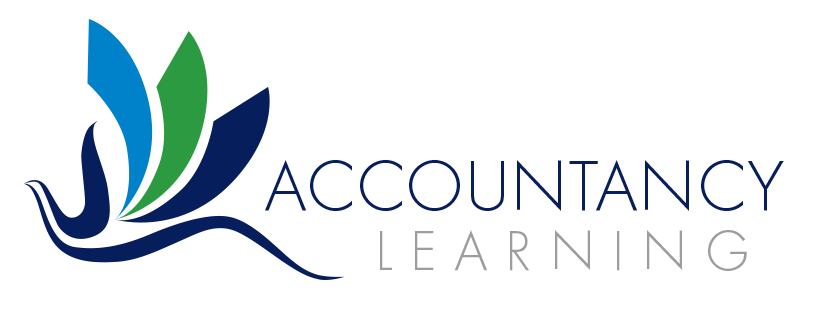There are lots of different types of accountant and different ways to become an accountant!
To become an accountant, you must first complete your qualifications. Understanding the different qualifications and where they lead is the first step to becoming an accountant and understanding which qualifications are right for you.
Firstly, there are Chartered Accountants:
- Chartered Accountant (ACA) There are different national variants of this, e.g. ICAEW (the Institute of Chartered Accountants in England and Wales); ICAS (Scotland); ICAI (Ireland)
There are also Institutes in Australia, Canada, Australia, New Zealand and South Africa - Chartered Certified Accountant (ACCA)
- Chartered Management Accountant (CIMA)
- Chartered Public Finance Accountant (CIPFA)
- Chartered Institute of Taxation (CTA)
There are also other Professional Accountancy Bodies, including
Other Accounting Technician, Professional Accountant or Bookkeeping bodies include:
- AAT – The Association of Accounting Technicians
- ICB – Institute of Certified Bookkeepers
- IAB – International Association of Bookkeepers
- ATT – Association of Tax Technicians
The above list is not exhaustive and in addition to other UK bodies, there will be other professional accountancy bodies in other countries.
(PS. If you see an FCA instead of an ACA, this stands for Fellow Chartered Accountant, which can only be applied for 10 years after qualifying)
- IAB goes up to Level 3 qualifications
- AAT goes up to Level 4
- IFA goes up to Level 5
- ACA and the other Chartered qualifications go up to Level 7
Before your undertake an accounting qualification to become an accountant, you need to figure out which one you should go for. This depends (a) on your starting point and (b) your desired end point. Although you need to be aspirational, you also need to be realistic.
- Do you want to work for someone or work for yourself?
- Do you want to become a bookkeeper or an accountant?
- What vacancies are available? Will you have to start at the bottom and work up?
If you can’t obtain a placement as a Chartered Accountant student, you may find it easier to obtain one as an Accounting Technician and use this as a stepping stone to “prove yourself” to an employer so that they will support you to progress to subsequent Chartered Accountancy training (ACA, ACCA or CIMA).
Taking the second question first:
- What is your desired end point?
Only you know that. If you want to be the FD of a Top 100 FTSE company, then you will probably want to go to a Russell Group University, get a good degree and train as a Chartered Accountant with one of the Big 4 firms. You don’t have to but it might make the path to your goal a bit easier.
If you want to run your own bookkeeping business, then you can take a completely different route.
We are happy to discuss the options with you – but please bear in mind, we are not a government funded careers counselling service! If you are going to Uni and want to undertake ACA training with the Big 4, then speak to them, not us!
Taking the first question second….
- At what level should I start my studies?
- Are you a school leaver with GCSEs, AS levels or A Levels?
- Are you a graduate with a relevant (accounting) degree or a non-relevant degree?
If a graduate, you can start studying for a Chartered qualification. You can also do this with A Levels in certain circumstances but you would normally be recommended to start at a lower level and work up.
However, and it is a ‘big however’, one of the main limiting factors for following this route is that you will be required to obtain a specified amount and range of work experience in a Training Organisation / Employer approved by the Professional Body you are studying towards. i.e. you need to be offered a training contract of some form.
You can get started on your studies but you won’t be able to finish them and become a member, without that crucial work experience in an approved training office, normally a minimum of 3 years. Without this, you can be left high and dry, part qualified and unable to qualify.
For the ACA route, these training places are very hard to come by and competition for them is fierce. 30 years ago, 98% of ACA trainees were graduates. However, there are a growing number of trainees who leave school after “A” level, undertake an Apprenticeship in Accounting to complete their AAT qualification and then progress to ACA, claiming exemptions from some of the Certificate Level papers.
There are also exemptions for progression to ACCA and CIMA. The AAT is a great building block for this and a way of getting ones foot in the door at an employer.
Have you a number of years’ experience in accounting but no accounting qualifications?
If this is the case, then we would (obviously!) recommend that you complete the AAT qualification so you have a recognised qualification, with professional credibility, that both reflects your current knowledge/skills and enhances them. The question is where to start – at what level.
We do get a lot of students, who despite having prior experience, start with the (Level 2) Foundation Certificate in Bookkeeping in order to a) remind themselves of and refresh those double entry principles and b) get back into a study routine on a topic they understand and c) get used to the AAT terminology and the computer based exam process. They then progress to the full (Level 3) Advanced Diploma in Accounting.
Have you no experience in accounting but are looking to change careers and thought that accountancy would suit you?
We would generally recommend that you start with the (Level 2) Foundation Certificate in Accounting.
If you are able to put in about 8 hours of study each week, you could plan to complete this in 8 months (we have had a very keen student complete it in 15 weeks).
You could then progress to the (Level 3) Advanced Diploma in Accounting and then to the (Level 4) Professional Diploma in Accounting, taking 12 months and 13 months respectively on the same 8 hours of study per week. It could take you longer or you could complete it quicker.
What do you want to end up doing?
Do you want to become an Accountant, or do you want to be a Bookkeeper and offer bookkeeping services to small clients and then pass any really technical stuff, including tax advice, onto a friendly firm of accountants?
If so, then you would probably prefer to undertake a bookkeeping qualification.
Having said that, the AAT exams that cover the AAT bookkeeping qualifications are also included as part of the wider range of exams that are included in the AAT accounting qualifications, so if you want to, you can start with the bookkeeping exams and when you find you love it, progress to the full accounting qualification, making use of the exams you have already passed.
If you think that starting with the AAT qualification is right for you but you would like to talk to someone to discuss your options in more detail, do give us a call on 01392 435349.
When prospective students phone us to enquire about enrolling, our first question is NOT “What is your long card number?”!?! It is “Why?”
We want to be sure that we understand your plans and aspirations so that we can advise you more effectively. The course option you original considered might not be the best route for you.






